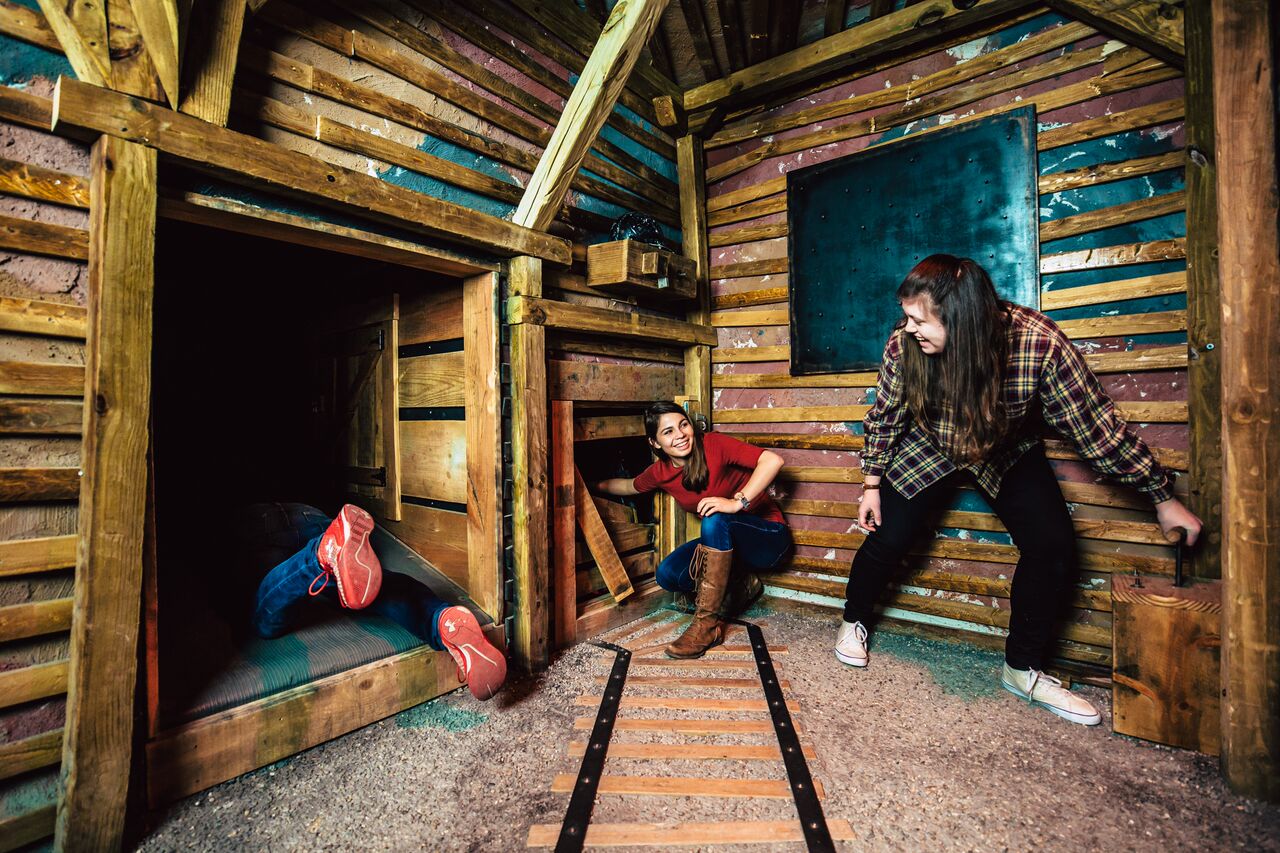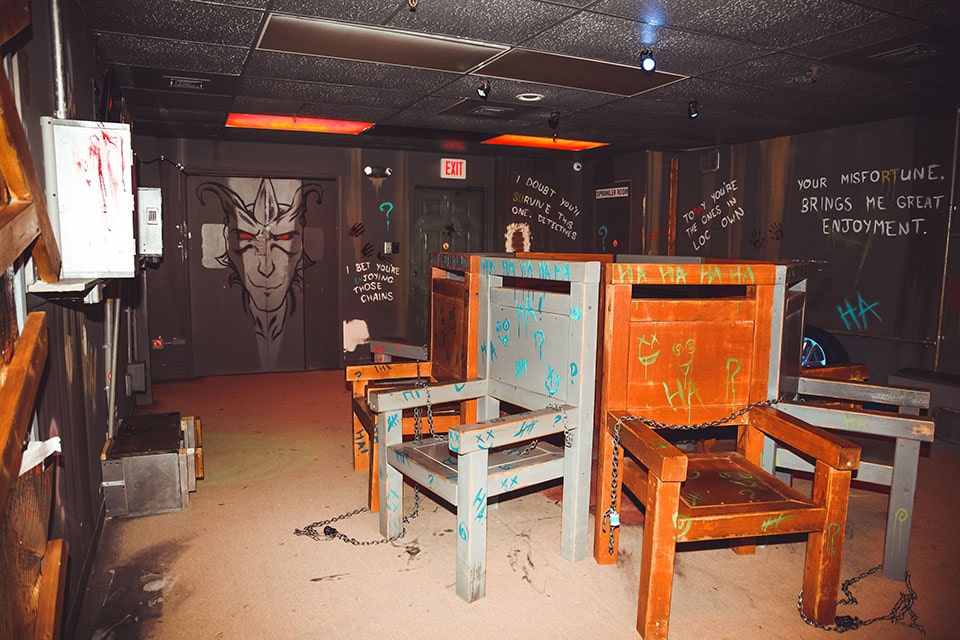Best Escape Room Experience-- Exciting Games and Puzzles for Groups
Best Escape Room Experience-- Exciting Games and Puzzles for Groups
Blog Article
Team Approaches: Exactly How to Team up Effectively in an Escape Area
Navigating the intricacies of a getaway room demands even more than simple enthusiasm; it calls for a well-coordinated approach based in clear communication, tactical duty projects, and experienced time management. Teams must proactively listen per member's insights, designate duties that align with private strengths, and maintain normal check-ins to guarantee focus and stop redundancy. By fostering an atmosphere that values cohesion and adaptability, teams can significantly enhance their performance and success rates. The nuances of these methods can change the experience, but exactly how precisely can they be executed to maximize the possibility for success?
Establish Clear Communication

To promote clear communication, it is essential to mark a main factor of contact for details dissemination. Quick, concentrated updates from each group participant can maintain the team informed without overwhelming them with details.

Appoint Functions Strategically
While clear communication establishes the foundation for effective synergy, appointing roles strategically makes sure that each staff member's staminas are used effectively. In a retreat space situation, the time-sensitive and complex nature of challenges requires an efficient strategy to task delegation. By determining and leveraging specific expertises, groups can maximize their analytical capacities and boost overall efficiency.
First, analyze the distinct abilities and features of each participant. Someone with a keen eye for detail may succeed in discovering covert objects, while a rational thinker might be better fit to resolving puzzles. It's equally crucial to have a leader that can look after progression, handle the timeline, and make definitive calls when necessary. This role commonly requires strong organizational and interpersonal abilities.
2nd, guarantee that roles are flexible and adaptable. As new difficulties arise, the team must be able to pivot, reapportioning jobs as called for. This versatility assists keep momentum and prevents bottlenecks that might take place due to stiff function assignments.
Eventually, a critical approach to function task not just makes best use of the toughness of each group member yet also cultivates a natural atmosphere, driving the team in the direction of an effective retreat.
Utilize Diverse Abilities
Acknowledging and taking advantage of the varied skills within your team can dramatically boost your efficiency in an escape area. Each employee brings one-of-a-kind strengths to the table, and efficiently leveraging these capabilities can expedite analytical and boost overall efficiency. A team participant with strong logical skills could excel at analyzing complicated codes or patterns, while an additional with eager empirical abilities may rapidly identify surprise ideas that others might ignore.
Efficient interaction is crucial to using these varied skills. Encourage team members to articulate their understandings and concepts promptly, making sure that all possible services are thought about. This comprehensive strategy fosters a vibrant environment where creativity and vital thinking can thrive. Additionally, assigning tasks that line up with each participant's strengths can avoid bottlenecks and make sure that progress is continuous.
Furthermore, variety in skills commonly translates to diversity in thinking styles, which is very useful in an escape room setting. While some challenges might call for sensible reasoning and accuracy, others could take advantage of creative and association of ideas. By recognizing and leveraging this variety, teams can resolve a broader variety of challenges better, consequently enhancing their possibilities of a successful escape.
Manage Time Successfully

First, designate first mins for a fast study of the area. Recognize noticeable over at this website problems and divide jobs based on staff member' toughness, making certain that nobody is still. Set internal time checkpoints to evaluate development regularly; as an example, goal to have half the problems addressed by the mid-point of the video game. This method can aid keep the group concentrated and prevent time from escaping unnoticed.
Additionally, prevent tunnel vision. If a challenge is taking also long, revolve team members or go on to an additional obstacle, returning later on with fresh perspectives. Communication is critical-- keep every person upgraded on resolved puzzles and remaining jobs to avoid redundant initiatives.
Last but not least, use any type of hints or clues moderately however strategically - best escape room. Understanding when to request for aid can save important time. By adhering to these time administration principles, teams can substantially boost their chances of an effective and satisfying escape space experience
Debrief and Mirror
Representation is a crucial aspect of team advancement and renovation in the context of getaway spaces. When the challenge is finished, whether successfully or not, it is crucial for the team to take part in a structured debriefing session. This process enables staff member to analyze their performance, identify toughness, and identify areas for enhancement.
Begin the debrief by discussing what went well. Highlight particular instances of effective communication, analytic, and collaboration. Acknowledging these positive actions enhances them and encourages their repeating in future challenges.
Go over moments of confusion, miscommunication, or ineffective techniques. Motivate an open and useful dialogue where group members can share their point of views without concern of objection.
Conclusion
Finally, effective partnership in a retreat space is asserted upon clear interaction, calculated function jobs, the efficient utilization of varied abilities, and proficient time administration. Routine check-ins and structured debriefings are crucial for maintaining emphasis and fostering continuous improvement. By creating a cohesive and flexible team setting, the possibility of successfully solving challenges and accomplishing the purpose of getting Bonuses away the space is considerably improved. This method not only makes certain success but additionally promotes cumulative development and knowing.
Report this page